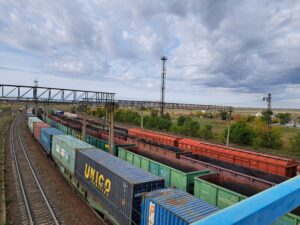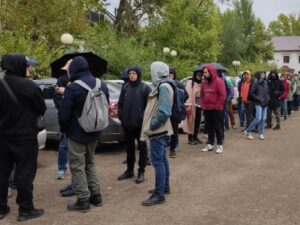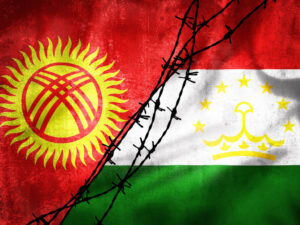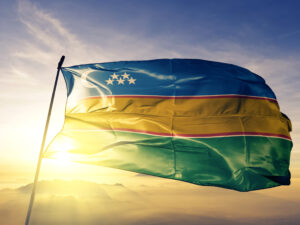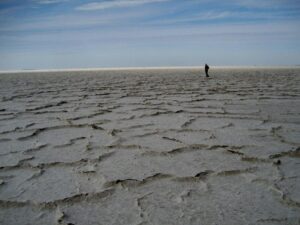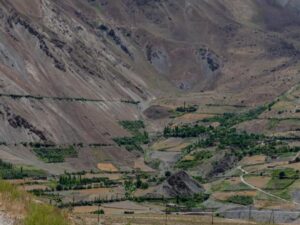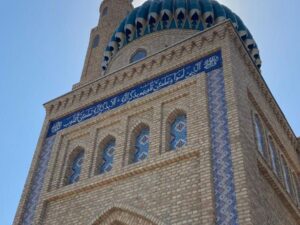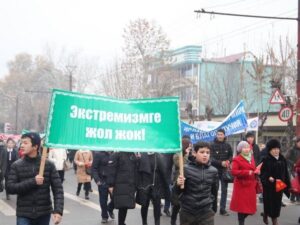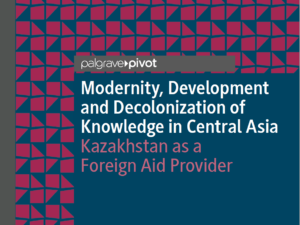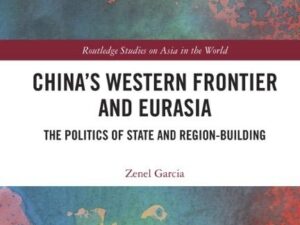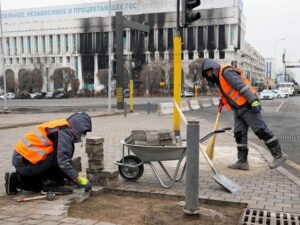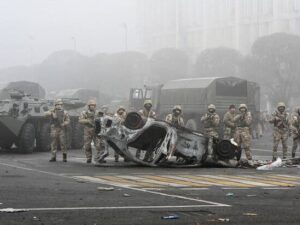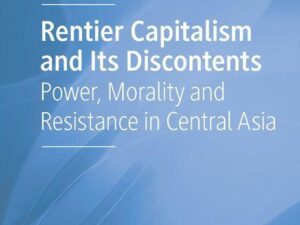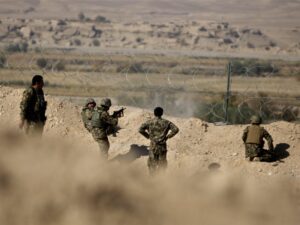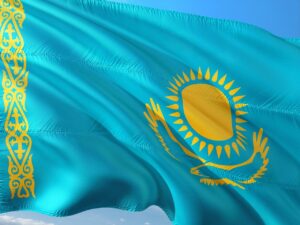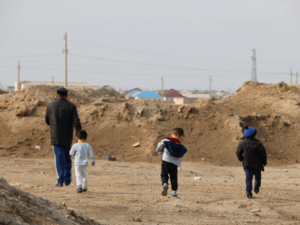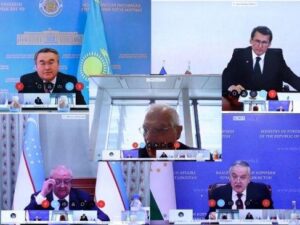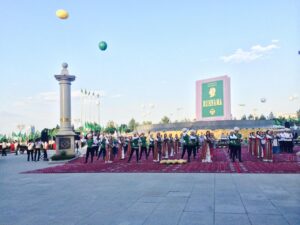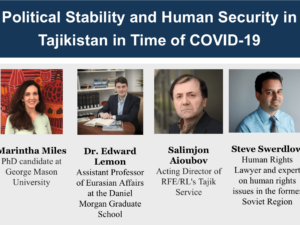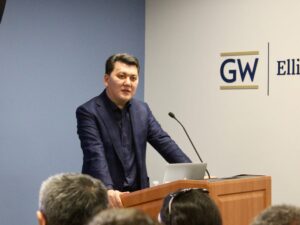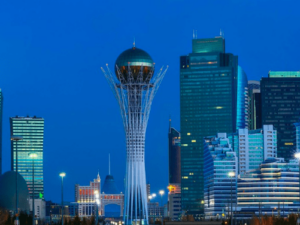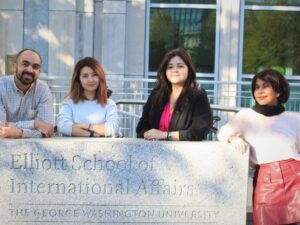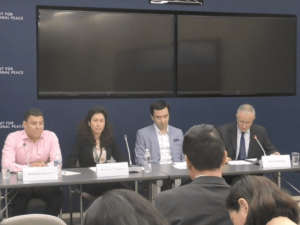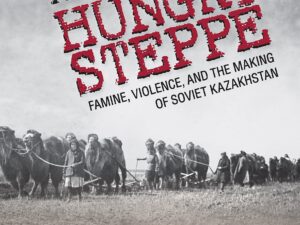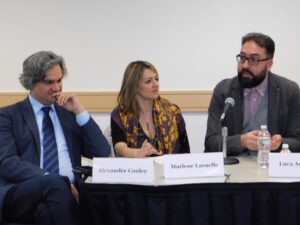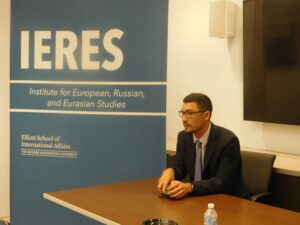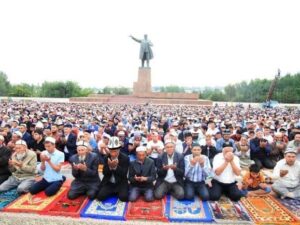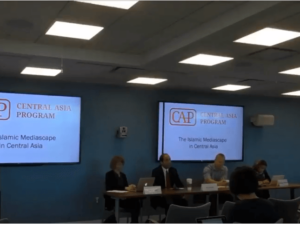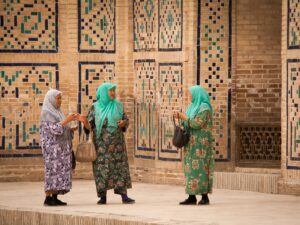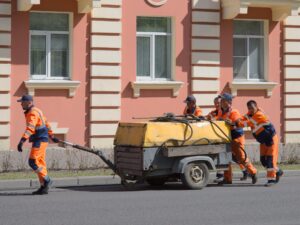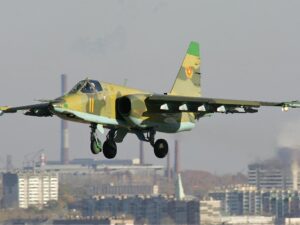
- This event has passed.
Infrastructure and Connectivity in the Pamir Mountains
25 January, 2023 @ 9:00 AM – 10:00 AM
Infrastructure in the Pamir Mountains often fuels the narrative of greater connectivity brought about by regional megaprojects such as the Belt and Road Initiative (BRI) or the China Pakistan Economic Corridor (CPEC). While roads promise to link the remote regions of the Pamirs to globalized dynamics, a local-scale perspective shows more nuanced aspects of connectivity, mobility, and everyday understandings of these concepts. What do the BRI and CPEC mean for local inhabitants of the Pamirs in Tajikistan and Afghanistan? Who benefits from road construction? Is connectivity infrastructure opening up remote mountain regions? This panel will discuss their recent publications on the matter and present their long-term fieldwork observations and experiences in Afghanistan and Tajikistan’s Pamirs.
SPEAKERS
Suzy Blondin received her PhD in geography from the University of Neuchâtel (Switzerland) in 2021. Her doctoral dissertation examined issues of mobility to, from, and within Tajikistan’s Bartang Valley and the way urban-rural mobility helps the Bartangis to preserve intimate bonds with their valley despite pressing environmental risks and economic vulnerabilities. Her work brings forward the issue of involuntary immobility caused by low accessibility and low motility, which threaten food security and access to healthcare and to socioeconomic opportunities. Her recent work has been published in the Journal of Ethnic and Migration Studies, Mobilities, and Geoforum.
Tobias Marschall (PhD, Geneva Graduate Institute) is a researcher and photographer. His dissertation is titled “The Image of Remoteness: Alterity and Mobility in Eastern Afghanistan.” His thesis considers how an image of remoteness is refracted along migration pathways in eastern Afghanistan. Between 2015 and 2019, he grounded his visual ethnography in walking the rugged terrain of the Afghan Pamirs, attending to migrants’ Central Asian nodes of movement and participating in their online extension.
Till Mostowlansky is a research professor in anthropology and sociology at the Geneva Graduate Institute. He is the author of Azan on the Moon: Entangling Modernity along Tajikistan’s Pamir Highway (University of Pittsburgh Press, 2017), co-editor of Infrastructure and the Remaking of Asia (University of Hawaii Press, 2022) and the principal investigator of the Swiss National Science Foundation-funded project “Quiet Aid: Service and Salvation in the Balkans-to-Bengal Complex” (2022–2027).
Moderator, Mélanie Sadozaï
Post-doctoral fellow at IERES (2022–2023). Her work, based on ethnographic methods and extensive fieldwork since 2014, focuses on cross-border relations in remote areas of Afghanistan and Tajikistan in the Pamir Mountains. Her research interests include everyday life along the border, remoteness and connectivity in high mountain regions, relations between the Taliban and other Central Asian governments, and geographical history of the border and the Pamirs. She has published academic pieces in the Journal of Borderlands Studies, Problems of Post-Communism and the Journal of Power Institutions in Post-Soviet Societies.




